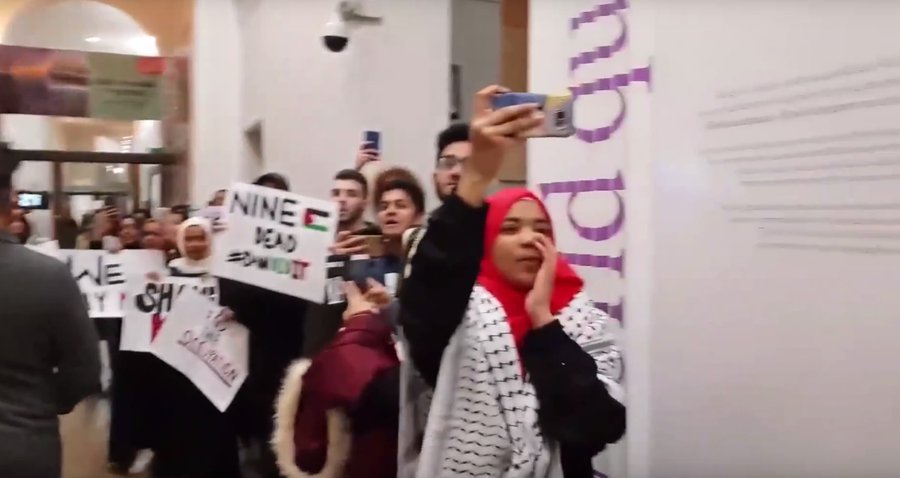“Arbitrarily deciding whose culture is political is a terrible precedent for a culture institution to set,” says fired employee.
By World Israel News Staff
Four New York City museum workers who were fired after they knowingly violated a ban on wearing political symbols in the workplace decried the move as “racist.”
In August, the Noguchi Museum publicly announced that it barred its employees from wearing politically-charged items, including the keffiyeh, a black-and-white checkered scarf often worn by those who promote Palestinians using violence or terror against Israel.
“To maintain a neutral and professional environment, employees are prohibited from wearing clothes or accessories that display political messages, slogans, or symbols. This includes, but is not limited to, apparel or items that promote political parties, candidates or ideological movements,” the director of the museum, Amy Hau, told staff in a statement.
After several employees defiantly continued to wear keffiyehs while working, the museum terminated them.
The move sparked a protest outside of the museum, where dozens chanted against the director and slammed the Jewish State.
“Kept us silent, kept us down. Fire [museum director] Amy [Hua], shut it down,” the demonstrators chanted, while one held a sign reading “From the River to the Sea.”
“Arbitrarily deciding whose culture is political is a terrible precedent for a culture institution to set,” Trasonia Abbott, one of the employees who was fired, told ARTNews.
Abbott admitted to ARTNews that the museum had warned her that she would face disciplinary action if she did not remove the keffiyeh while working.
“I told them my reasons for wearing it, and how personal it was to me that these reasons included my faith, worldview and my connection to this issue as a victim of police brutality,” Abbott said. “None of this mattered.”
Because Abbott is black, the protesters accused the museum of “racism” for firing her.
Natalie Capellini, another employee fired for violating the keffiyeh ban, said the museum was hypocritical because it has previously taken a stance on controversial issues.
“The museum itself is political,” she told ARTNews. Capellini said that the museum has publicly criticized violence targeting Asian-Americans and police brutality.
“This entire time, [Hau] has continuously asserted that banning the keffiyeh is a way for the museum to maintain an apolitical air, to maintain that the museum is a sanctuary. But a ban is a stance.”


